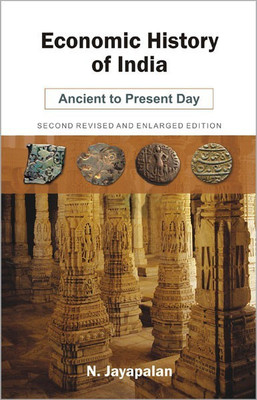Economic History of India Ancient to Present Day(English, Hardcover, Jayapalan N.)
Quick Overview
Product Price Comparison
For a proper understanding of IndiaŌĆÖs economy as we find today with its fast development, a study of its past economic conditions is necessary. IndiaŌĆÖs economic history spans nearly 5000 years and dates back to Indus Valley Civilisation the two prominent cities of whichŌĆöMohanjodaro and HarappaŌĆöwere big industrial centres having trade relations with West Asia and other parts of the world. Several sources provide us valuable information about the economic condition of the people of India at various stages of history. From Vedic literature we get a detailed description of the economic life of the Aryans. The Buddhist literature, particularly Jatakas and Tripitaka give us a glimpse of the economic condition of India from 650 to 321 B.C. when every village was a self-sufficient unit. KautilyaŌĆÖs Arthasastra, MagasthenesŌĆÖ Indica and VishakhadattaŌĆÖs Mudrarakshasa give detailed description of the economic systems of the Mauryan period. The accounts of Chinese travellers Fa-hien and It-sing are remarkable evidences of the socio-economic life in Gupta period. Historians like Manucci tell us about the economic reforms undertaken during Mughal rule in India. The British who carved out their empire in India in the 17th century, drained India of its wealth, destroyed the self-sufficient character of villages, increased agricultural indebtedness, and gave rise to a capitalist class in India with the growth of new urban centres. After the achievement of independence in 1947 started the process of nation-building through economic planning. With the liberalisation of Indian economy in the 1990s, the country has been put on a high growth path and is making fast economic progress. The book captures the salient features of IndiaŌĆÖs economic history in chronological order. It will fulfil the needs of students and teachers of this subject and prove immensely useful to the aspirants of Civil Services and other competitive examinations.


